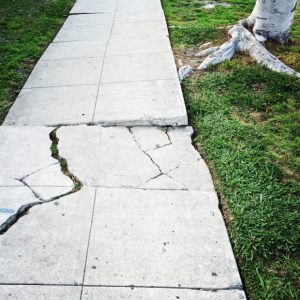In Florida premises liability law, the “open and obvious doctrine” is one that states business owners can’t be held liable for open and obvious dangers – unless the owner should have anticipated harm despite the open and obvious condition.
An “open and obvious danger” is one that creates a visible, well-known risk of harm that would be discernible by casual inspection to someone of typical intelligence.
Property owners in general have a duty to maintain a reasonable degree of safety on their properties and to warn others of dangers that aren’t obvious. But patrons, guests and tenants also have a responsibility to recognize and appreciate danger when it’s open and obvious – and take prudent measures to protect themselves from that harm.
If successful, the open and obvious defense can result in either:
- Reduction of damage awards (thanks to Florida’s comparative fault law).
- Relieving the defense of any liability.
Overcoming the Open and Obvious Defense
There are several exceptions to the open and obvious doctrine. Two of those include:
- Property owner knew or should have known people were likely to be hurt, even if they were aware of the danger.
- Negligence per se, which would involve violation of a health or safety statute.
While the open and obvious doctrine may relieve a defendant property owner of the responsibility to warn guests about a hazardous condition, that doesn’t mean they can simply ignore it.
Take for example the recent case of Carroll v. Carnival Corp. by the U.S. Court of Appeals for the Eleventh Circuit. Plaintiff sued a cruise line after she tripped over the leg of a lounge chair while walking behind her husband in a narrow walkway next to the ship’s railing. Her view of the danger as she followed her husband, she said, was obstructed. She alleged the cruise line was liable for failing to maintain the walkway and also for not warning her of the dangerous condition. The trial court granted the defense’s motion to dismiss, based in large part on the fact that plaintiff testified she could have seen the leg of the chair if she’d looked down. The 11th Circuit reversed, noting that even if the hazard was open and obvious, that only meant the the cruise line didn’t have a duty to warn the plaintiff about it. The defendant still had a responsibility to use reasonable care in maintaining a safe walkway.
The open and obvious defense can, however, be fatal to a case. In the 2018 case of Trugreen Landcare, LLC v. Lacapra, Florida’s 5th District Court of Appeal affirmed dismissal of plaintiff’s premises liability claim. He’d been injured at a movie theater when he walked off a paved sidewalk and into an unpaved planter bed that contained a large tree. He stepped into a depression, fell and suffered serious injury. The defendant argued the planter box wasn’t dangerous, but that whatever hazard was presented was open and obvious, and plaintiff should have expected uneven ground when stepping off the sidewalk and onto an unpaved planter box. The trial court and the Fla. 5th DCA agreed, noting the ground in the planter box was openly and obviously uneven, and thus, defendant had no duty to warn the plaintiff of the danger.
It’s important if you’re injured in on business property in South Florida to talk with an experienced injury lawyer who can help you determine the viability of your claim, as well as effective arguments to challenge the defense.
Contact the South Florida personal injury attorneys at Halberg & Fogg PLLC by calling toll-free at 1-877-425-2374. Serving West Palm Beach, Miami, Tampa, Orlando and Fort Myers/ Naples. There is no fee unless you win.
Additional Resources:
Carroll v. Carnival Corp., April 15, 2020, U.S. Court of Appeals for the Eleventh Circuit
 South Florida Injury Lawyer Blog
South Florida Injury Lawyer Blog

